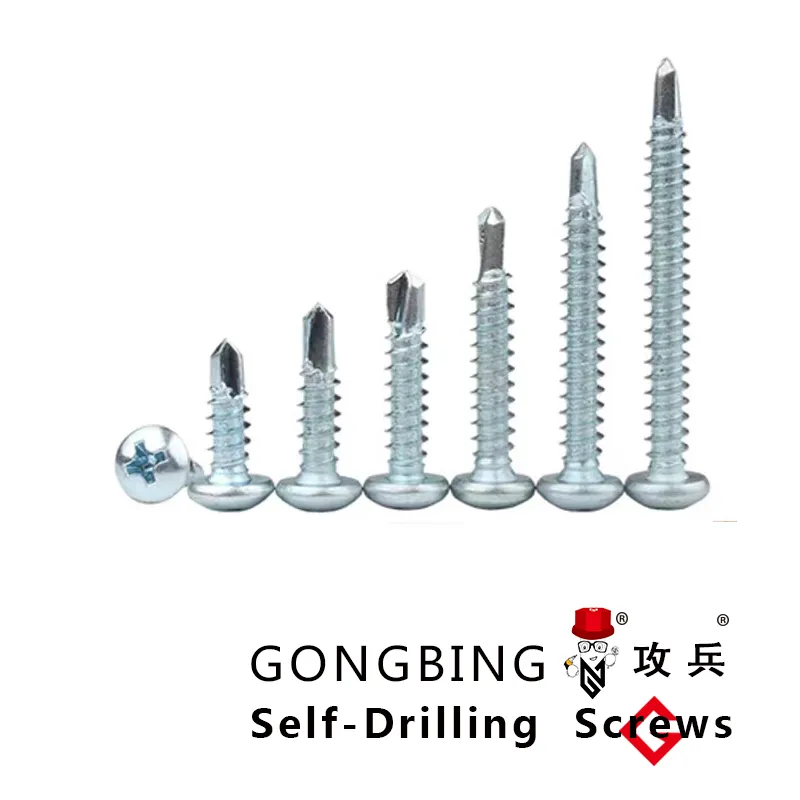plastic expansion rivets
Understanding Plastic Expansion Rivets A Comprehensive Guide
Plastic expansion rivets, also known as plastic anchors or plugs, are becoming increasingly popular in various applications, ranging from construction and automotive to furniture assembly. These versatile fasteners offer a reliable solution for joining materials, providing strength and durability without the need for heavy tools or complicated installation processes. In this article, we will explore the features, advantages, and applications of plastic expansion rivets.
Firstly, let's delve into the design of plastic expansion rivets. Made from high-quality plastic materials, these rivets typically feature a tapered design that allows for easy insertion into drilled holes in various substrates, including drywall, concrete, and masonry. Once inserted, the rivet expands upon the application of a screw or bolt, creating a secure hold that can withstand significant tensile and shear forces. The expansion mechanism is crucial in ensuring that the rivet grips the surrounding material tightly, preventing any movement or loosening over time.
One of the standout advantages of plastic expansion rivets is their lightweight nature. Unlike metal fasteners, which can add unwanted weight to a project, plastic rivets provide a strong yet lightweight alternative. This characteristic is particularly beneficial in applications where maintaining a low weight is essential, such as in automotive and aerospace industries. Additionally, plastic rivets are resistant to corrosion, making them an ideal choice for outdoor applications or environments with moisture exposure.
plastic expansion rivets

The simplicity of installation is another major benefit of plastic expansion rivets. Unlike traditional rivets that require special tools for installation, plastic expansion rivets can be installed with just a standard screwdriver. This ease of use makes them accessible for both professionals and DIY enthusiasts alike. Furthermore, the design allows for quick and efficient installation, often saving time and labor costs on projects.
Plastic expansion rivets are incredibly versatile and can be used in a wide range of applications. In the construction industry, they are commonly used for hanging fixtures, securing cables, and affixing drywall. In automotive manufacturing, these fasteners are employed to attach interior panels and trim. Meanwhile, in furniture assembly, plastic expansion rivets provide a clean and effective method for connecting components, ensuring stability and longevity.
However, it is crucial to select the right size and type of plastic expansion rivet for your specific application. Factors such as the material thickness, load-bearing requirements, and environmental conditions should be considered to ensure optimal performance. Additionally, proper installation is key to maximizing the efficacy of these rivets.
In conclusion, plastic expansion rivets represent a convenient and efficient fastening solution for various industries. Their ease of installation, lightweight nature, and resistance to corrosion make them a preferred choice for many applications. Whether you're a contractor, engineer, or DIY enthusiast, understanding the benefits of plastic expansion rivets can help improve the quality and efficiency of your projects. As technology advances, we can expect to see more innovative designs and improvements in this essential fastening solution, further solidifying its place in the world of construction and assembly.
-
Weatherproof Plastic Expansion Anchors for OutdoorNewsJun.06,2025
-
Sustainability in the Supply Chain: Eco-Friendly TEK Screws ProductionNewsJun.06,2025
-
Load-Bearing Capacity of External Insulation FixingsNewsJun.06,2025
-
Double Head Bolts: Enhancing Efficiency in Industrial MachineryNewsJun.06,2025
-
Corrosion Resistance in Chipboard Screws: Coatings for Wholesale DurabilityNewsJun.06,2025
-
Butterfly Toggle Bolts : Enhancing Structural ResilienceNewsJun.06,2025
